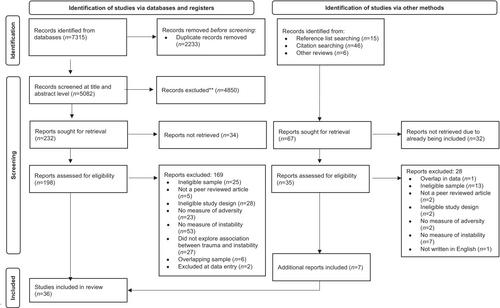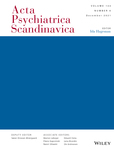Affective instability represents an important, transdiagnostic biobehavioural dimension of mental ill health and clinical outcome. The causes of affective instability remain unclear. This systematic review and meta-analysis evaluated the extent to which exposure to childhood adversity is associated with affective instability across psychiatric disorders, and which forms of adversity are most strongly associated with affective instability.
The review followed a published protocol (PROSPERO: CRD42020168676). Searches in Medline, Embase and PsychInfo identified studies using quantitative measures of childhood adversity and affective instability, published between January 1980 and July 2023. Data were analysed using a random effects meta-analysis separately for each outcome, namely affective lability, emotion dysregulation, and rapid cycling. The Mixed-Methods Appraisal Tool was used to appraise the quality of the literature.
The search identified 36 studies involving 8431 participants. All reports focused on cross-sectional associations. We did not identify any prospective longitudinal research. The analysis showed small, but statistically significant effects of childhood adversity on affective lability (r = 0.09, 95% CI 0.02, 0.17), emotion dysregulation (r = 0.25, 95% CI 0.19, 0.32), and rapid cycling (OR = 1.39; 95% CI 1.14, 1.70). When considering adversity subtypes, emotional abuse showed the strongest effect on affective lability (r = 0.16, 95% CI 0.07, 0.24) and emotion dysregulation (r = 0.32, 95% CI 0.19, 0.44). Quality assessment scores were generally low. Most studies failed to control for confounding factors or offer assurances around the representativeness of the samples.
The findings suggest that childhood adversity, particularly emotional abuse, is associated emotional instability in adulthood, but further prospective longitudinal research is needed to confirm causality. The findings have implications for the prevention and treatment of affective instability across psychiatric disorders.



